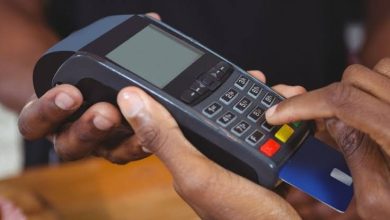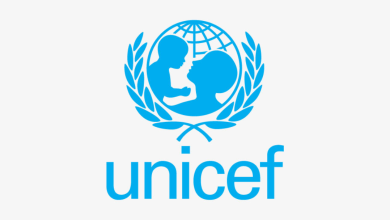Data Drain: Nigerians Adjust to Telecom Tariff Hike
Subscribers Turn to Social Media, Businesses Face Increased Costs Amidst Poor Network Services

Some telecommunication subscribers in Ibadan, Abeokuta and Ilorin have expressed how the hike in tariffs has necessitated a change of lifestyles and ingenious coping mechanisms.
The respondents, speaking separately with the News Agency of Nigeria (NAN) on Friday, however, called on the Federal Government (FG) to consider a downward review of the tariffs.
This, they said, would ease the economic burden already being borne by many Nigerians.
NAN recalls that the telecommunication companies recently got the FG’s approval to increase their tariffs by 50 per cent against their initial plan of a 100 per cent increment.
To beat the situation, subscribers say they have devised alternative means of making traditional phone calls via social media platforms, such as the Telegram and WhatsApp.
According to the subscribers, this development is commonly practised among the youth.
Thus, a student of The Polytechnic, Ibadan, Miss Felicia Alagbe, said that calling via social media platforms had eliminated her fear of having to spend more on airtime.
According to her, it is cheaper and easier to speak with her family members via a conference call on social media platforms.
Also, a student at the University of Ibadan (UI), Ilerioluwa Adebisi, said he had been using the school internet facility to make calls and do other school assignments since the increment.
“As a student who can’t afford the increased tariff, I always stay back after the daily school activities to use the school’s internet facility for calls and other academic assignments.
“This has helped to reduce my call and data expenses,” he said.
Lamenting the hike, a UI Postgraduate student, Mr Dayo Akinlabi, said the situation of having to run detailed research for his thesis through the internet was tough.
“This is due to lack of funds to buy data.
“Most students depend on information sourced from the internet, aside from reading books to enhance the quality of their researches.
“With the hike in telecommunication tariffs, it may be difficult to get enough information,” Akinlabi said.
However, a legal practitioner, Mr James Ajibola, acknowledged the rights of the network providers to increase the tariff of any of their products, considering the high rate of inflation in the country.
Ajibola said that with the economy in a poor state, it wouldn’t have been wrong for network providers to improve the conditions of service of their employees.
“We must understand that many privately-owned companies have closed and are still folding up due to the high cost of production.
“If they don’t increase their tariffs, how would they be able to meet up with payment of workers’ salaries?
“My piece of advice is that Nigerians should adjust and manage their usage of the internet and social media,” Ajibola said.
He added that private companies had no legal obligation to reduce the price of any of their commodities, especially if it was not profitable to them.
Contrarily, another legal practitioner, Mr Oluwatobi Fatoki, described the hike as a sad, painful and strenuous development.
Fatoki, who described communication as key, decried the situation whereby Nigerians were made to go through the stress.
“We are in the computer age; even the aged and illiterates are using technology, so this is not the best time for increment.
“The situation is telling on everybody, and something needs to be done urgently to address the hike,” he said.
Fatoki appealed to the Consumer Protection Unit, the National Assembly and FG to aid Nigerians by reversing the tariffs.
“The government can also subsidise internet for the citizens as it’s being done in other developed countries,” he said.
From the Bodija Market, Ibadan, a trader, Mrs Oluwatoyin Fatai, described the services rendered by telecom companies as poor, despite the huge tariff hike.
Fatai says that issues of slow internet and frequent call drop have been great impediments to the smooth running of her business.
“My business depends on quality telecommunication services; most of the time, I will need to wait for hours online for a financial transaction due to bad network.
“It is, however, the same experience if you decide to enter the banking halls for any transaction.
“Nigerians are paying more despite the poor services; we need government intervention,” she said.
Similarly, a cross section of business centre owners, Point on Sale (POS) operators and food vendors decried the increment.
A business centre operator, Mr Francis Adekoya, said he had lost a significant number of customers due to increased data tariff.
“This is too ridiculous, as many people cannot afford the current prices.
“I, thereby, call on the government to do something urgently to arrest the situation,” Adekoya said.
A trader, Mrs Nafisat Bankole, said she had started charging extra fees on items not purchased with cash.
According to a POS operator, Mrs Joy Ige, Nigerians have been unnecessarily exposed to numerous economic challenges at the same time.
“The data that has been connecting us to the internet and social media is being systematically taken away from us.
“We hardly have access to the terrestrial television due to constant power outage, and the alternative is gradually being taken away from us due to bad economy,” she said.
An upcoming Disc Jockey, Mr Goodnews Emelem, decried the development and urged President Bola Tinubu to make the citizens’ economic wellbeing a priority.
“As an upcoming entertainer, streaming and downloading of new and oldies are essential for me to keep my audience, yet there is little or no money to do that.
“I’ve been managing to download through the social media, but with the current increment in tariffs, it has practically become impossible for me to work on the internet regularly,” Emelem said.
Another entertainer and content creator, Mr Ayobami George, described the hike as hand-twisting Nigerians in the process of making profits.
George advised the government to protect the citizens against any form of exploitation.
“We are not against tariff increment, but where it is more than double the initial price, is ridiculous,” George said.
In Abeokuta, subscribers not only expressed concern over the hike but much more about still experiencing poor services despite the hike.
An engineer at Oke Ilewo, Abeokuta, Mr Ahmed Jamiu, noted that despite spending more on calls, the network services remained poor when compared with when the tariffs were lower.
He urged the FG to shelve the idea as it had only compounded the problems in the country.
A secondary school teacher, Mr Adeleke Akanni, who said he had reduced the frequency of his calls, advised the FG to concentrate on reducing Nigerians’ burdens.
Meanwhile, a visit by NAN to some telecom offices within Abeokuta confirmed subscribers’ tales of woe.
The offices were besieged by subscribers with tons of complaints such as unexpected deductions from calls, quick exhaustion of data bundles and frequent network signal disappearance on their phones.
In Ilorin, a subscriber, Chief Alloy Chukwuemeka, said he had observed a significant increase in the number of people reaching out to him on social media.
Likewise, he said he had restricted his phone calls to only those whom he could not either chat with or call on messaging apps.
According to him, the surge suggests that improved accessibility and affordability of digital services have bridged gaps and fostered connections among individuals in Nigeria as an alternative means of communication.
Luqman Ajimoti echoed Chukwuemeka’s sentiments, noting a similar trend in increased connectivity.
He observed that people now reach out to him more frequently via social media platforms, utilising both voice calls and messages to initiate conversations.
An economic expert, Mr Adebayo Olutimi, highlighting the negative effects of the increment on the nation’s economic activities, said it would increase business expenses.
“Most businesses now use the internet, SMS and calls to reach their customers.
“Some even have data stored in cloud devices, which need the internet to access.
“Individuals and businesses will have to pay more for their telephone, internet, and other telecommunication services, which can lead to increased economic expenses,” he said.
He advised the people to make fewer calls, send fewer texts, and use lesser data.
“The use of messaging apps or Voice over Internet Protocol (VoIP) services has increased.
“The increase in tariffs has made telecom services less affordable for start-up businesses and low-income households, thereby increasing the digital divide we already have in Nigeria and increasing the marginalisation of rural communities.
“Businesses that rely heavily on telecom services, such as call centres or online enterprises, data analysts and a lot of digital infrastructure might see an increase in operational costs, which can affect their profitability and accessibility,” the expert said.
Olutimi called for a competitive telecom market to give consumers the option of switching to alternative providers with better pricing or services.
He also called for a better and effective regulatory body to intervene and prevent excessive price increases or ensure that network providers invest the additional revenue in improving services. (NAN)




